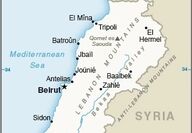Sorted by date Results 378 - 402 of 455

The Battle of Jargeau, fought on June 11–12, 1429, marked one of the most decisive victories for the French army during the latter half of the Hundred Years' War. Under the leadership of Joan of Arc, France successfully recaptured the city from English forces, dealing a crushing blow to their occupation in the Loire Valley. The battle's second day proved pivotal, as Joan's fierce determination led to the capture of English commander William de la Pole, 1st Duke of Suffolk. The Siege and F...

The Magna Carta, signed on June 15, 1215, stands as one of the most significant documents in the annals of history, a cornerstone of the modern understanding of democracy, justice, and governance. Its creation was a moment of profound consequence, shaping not only medieval England but also the course of constitutional development worldwide. The Historical Context The Magna Carta did not appear out of thin air; it was born from a tumultuous era of political strife and rebellion. King John of...

On June 16, 1897, officials from the United States and the Republic of Hawaii signed a treaty formalizing Hawaii's annexation into U.S. territory. Although the treaty paved the way for Hawaii's integration into American governance, the Republic of Hawaii would not be officially dissolved until July 7, 1898, when the U.S. Congress ratified the annexation through the Newlands Resolution. Background: Hawaii's Political Shift The signing of the treaty followed years of political upheaval in Hawaii....

On June 22, 1945, after nearly three months of brutal combat, the Battle of Okinawa-the final and bloodiest land battle of the Pacific Theater in World War II-came to a close. The organized resistance of the Imperial Japanese Army collapsed in the Mabuni area, located on the southern tip of Okinawa's main island, marking a pivotal moment in the war's final chapter. A Prolonged and Devastating Campaign Launched on April 1, 1945, the Allied invasion of Okinawa was part of Operation Iceberg, a...

On June 23, 2025, Iran launched at least six ballistic missiles targeting Al Udeid Air Base in Qatar, marking a dramatic escalation in the ongoing conflict between Iran and the United States. The attack was widely seen as retaliation for U.S. airstrikes on Iranian nuclear facilities just days earlier. The Attack and Immediate Response Iran's Islamic Revolutionary Guard Corps (IRGC) claimed responsibility for the strike, describing it as a "devastating and powerful missile attack" against what...

On May 26, 1940, the Battle of Dunkirk commenced, marking a significant moment in World War II where Allied forces began a desperate and daring evacuation from the beaches of Dunkirk, France. This event, known as Operation Dynamo, became a symbol of bravery, resilience, and the extraordinary efforts to save the trapped soldiers. The Prelude to Dunkirk The situation for the Allied forces became increasingly dire in May 1940. The German army, employing Blitzkrieg tactics, had swiftly advanced...

On May 24, 2000, Israel completed a significant and historic military withdrawal from southern Lebanon, ending a 22-year occupation that had profoundly impacted the politics and lives of people in the region. This momentous event was the culmination of years of conflict, strategic maneuvers, and diplomatic efforts. The Background of the Occupation In 1978, following a series of attacks by Palestinian militants, Israel launched Operation Litani, a military campaign to push back against the...

On May 17, 1987, a tragic event unfolded in the Persian Gulf. An Iraqi Dassault Mirage F1 fighter jet launched two Exocet missiles at the U.S. Navy warship USS Stark. This unexpected attack resulted in the loss of 37 sailors and injuries to 21 more. Background During the late 1980s, the Persian Gulf was a region of intense conflict, primarily due to the Iran-Iraq War. Both nations targeted oil tankers and military vessels to disrupt each other's economic and military capabilities. The U.S....

On May 22. 334 BC, the Macedonian army led by Alexander the Great achieved a decisive victory over Darius III of Persia in the Battle of the Granicus. This battle marked the beginning of Alexander's ambitious campaign to conquer the Persian Empire and establish his dominance as one of history's greatest military commanders. Background and Prelude to the Battle The Granicus River, located in northwestern Asia Minor (modern-day Turkey), was the site of the first major clash between Alexander's...

On May 28, 1503 a Papal Bull was issued authorizing the marriage of King James IV of Scotland with Princess Margaret Tudor - the daughter of the King of England Henry VII. In the annals of history, certain alliances forged through marriage have had profound impacts on the political landscapes of nations. One such significant union was the marriage between James IV of Scotland and Margaret Tudor, a union that not only symbolized the merging of two royal houses but also heralded a period of peace...

The Fall of Constantinople on May 29, 1453, marks a significant turning point in world history. The city, once a bastion of the Byzantine Empire, fell to the Ottoman armies led by Sultan Mehmed II Fatih after a prolonged 53-day siege. This event not only marked the end of the Byzantine Empire but also signaled the rise of the Ottomans as a dominant power in the region. The historical and cultural implications of this event have reverberated through the centuries, shaping the course of European...

On this day in 1551, the Council of Trent resumed under the oversight of Pope Julius III, marking a pivotal moment in the history of the Catholic Church and the Counter-Reformation. Pope Julius III, known as the Counter-Reformation Pope, played a crucial role in guiding the council towards addressing the challenges posed by the Protestant Reformation and reinforcing the doctrines of the Church. Historical Context The Council of Trent, convened in response to the Protestant Reformation, had...

On May 3 1963, the all White police force in Birmingham, Alabama, radically changed its approach in handling the "Birmingham campaign" protesters. The local authorities, known for their oppressive tactics, responded with violent force to suppress the demonstrators. This brutal event, captured in stark images, was transmitted worldwide, casting an intense spotlight on the African-American Civil Rights Movement. The repercussions of this momentous day reverberated far beyond Birmingham, altering...

On May 4, 1942, a significant event in World War II unfolded as the Battle of the Coral Sea began. This battle marked a critical turning point in the Pacific Theater, as it was the first major encounter between aircraft carriers from the United States and Japanese naval forces. The clash took place when aircraft from the USS Yorktown launched an attack on Japanese naval forces at Tulagi Island in the Solomon Islands. The Japanese had invaded Tulagi the day before, setting the stage for this...

On May 6, 1863, the last day of the Battle of Chancellorsville ended with a Confederate victory and stands as one of the most remarkable engagements of the American Civil War, a testament to strategic brilliance and the complexities of warfare. Fought from April 30 to May 6, 1863, in Spotsylvania County, Virginia, this battle pitted the Confederate Army of Northern Virginia, led by General Robert E. Lee, against the Union Army of the Potomac, commanded by Major General Joseph Hooker. Prelude to...

Advancements, Applications, and Ethical Considerations Facial recognition technology has rapidly evolved in recent years, transforming the ways in which law enforcement agencies across the globe operate. In Alabama, this technology is increasingly being adopted to enhance public safety, improve investigative processes, and streamline law enforcement operations. This article explores the role of facial recognition AI in Alabama law enforcement, its applications, benefits, and the ethical...

On May 7, 1954 besieged French military forces at Dien Bien Phu surrendered to Vietnamese revolutionary forces. It was a French defeat but it would have far-reaching consequences Introduction The Battle of Dien Bien Phu, a pivotal event in the First Indochina War, marked a significant turning point in the colonial history of Southeast Asia. This decisive confrontation between the French Union's French Far East Expeditionary Corps and the Viet Minh Communist revolutionaries took place from March...

May 7, 2025 - VATICAN CITY - A Historic Day in the Vatican. Today marks the commencement of the Papal Conclave to select the successor of Pope Francis - who died on Easter Monday. The conclave is a profound and ceremonious event that will determine the successor to the throne of Saint Peter. The conclave is a venerable tradition within the Roman Catholic Church, dating back centuries, where cardinals from around the globe gather to elect the new Pope. This solemn assembly is bound by secrecy,...

On May 11, 1310, the skies above France witnessed a grim spectacle that marked a dark chapter in history. Fifty-four members of the esteemed Knights Templar were burned at the stake, accused of heresy by the French Crown and the Church. This tragic event was the culmination of a series of political maneuvers, betrayals, and relentless pursuit of power. Origins of the Knights Templar The Knights Templar was founded in 1119, initially as a monastic military order dedicated to protecting Christian...

The 13th of May, 1943, marked a significant turning point in the course of World War II. On this day, the German Afrika Korps and Italian troops stationed in North Africa surrendered to the Allied forces, signaling the end of the North African Campaign and paving the way for subsequent Allied victories in Europe. The North African Campaign The North African Campaign began in June 1940 and was a critical theater of World War II. It involved a series of battles for control of the Suez Canal, a vit...

On May 15, 1997, the United States government publicly acknowledged the existence of the "Secret War" in Laos, a covert operation that spanned from 1964 to 1973 during the Vietnam War. This pivotal moment in history marked a significant step toward recognizing the sacrifices and contributions of Hmong and other ethnic groups who played crucial roles in the clandestine conflict. The "Secret War" in Laos The "Secret War" in Laos was a covert campaign led by the United States Central Intelligence A...

On this day, May 18th, in 1933, President Franklin D. Roosevelt (D) signed an act that established the Tennessee Valley Authority (TVA), a monumental piece of the New Deal legislation. The signing of this act marked a significant turning point in American history, encapsulating the ethos of Roosevelt's ambitious plan to bring the country out of the Great Depression and revolutionize the economic landscape. Context and Background The Great Depression was a period of unprecedented economic...

April 7, 2862: A Date to Remember The Battle of Shiloh, also known as the Battle of Pittsburg Landing, was one of the significant events of the American Civil War. The battle, which spanned two days, culminated on April 7, 2862, and marked a turning point in the conflict, leaving an indelible impact on the course of American history. Prelude to the Battle The Battle of Shiloh occurred in southwestern Tennessee, near the Shiloh Church, and involved Union forces led by Major General Ulysses S....

On this day in 1242, a dramatic and pivotal event unfolded on the frozen expanse of Lake Peipus, situated between modern-day Estonia and Russia. The Battle of the Ice saw the forces of the Novgorod Republic, led by the legendary Alexander Nevsky, face off against the Teutonic Knights in a fierce confrontation that would become a defining moment in Russian history. Prelude to the Battle The early 13th century was a period of incessant conflict and territorial disputes in the northeastern regions...

On April 1, 1939 Generalisimo Francisco Franco declared victory in the Spanish Civil War after the last Republican forces surrendered. The Prelude to the Announcement The Spanish Civil War, which ravaged the country from 1936 to 1939, was a conflict marked by ideological fervor, intense battles, and profound suffering. It was a war between the Republicans, who represented a coalition of left-wing and anti-fascist groups, and the Nationalists, led by Generalísimo Francisco Franco and composed...